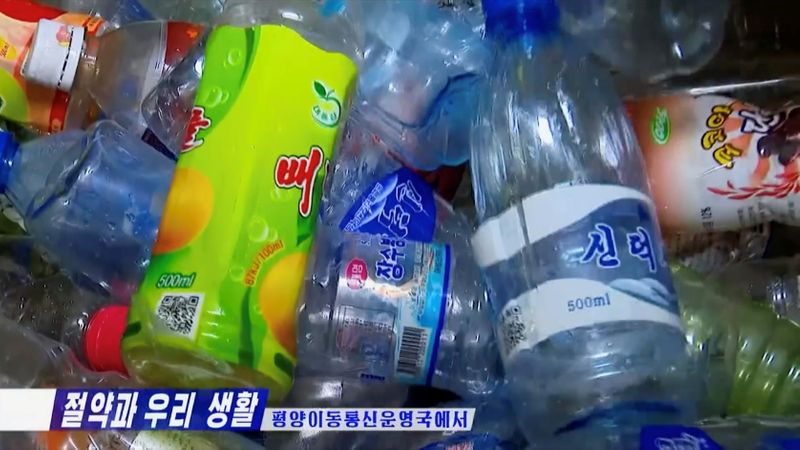By Minwoo Park
SEOUL (Reuters) - With anti-pandemic border closures throttling imports of goods such as plastic from China, North Korea's state media has described a massive focus on recycling as a way to turn its trash into treasure and build a more self-reliant economy.
The scale of recycling is unclear, and some experts are doubtful about the long-term efficacy of the effort, but there has been a clear policy pivot, with an emphasis on recycling now pervading most areas of everyday life.
Organizations are required by a law passed last year to recycle discarded and unused material, including plastic, fabric, paper, glass, scrap metal, rubber, used oil and industrial waste, according to state media agencies KRT and KCNA.
Residents can hand in recyclable waste such as empty bottles at state-run recycling centres or exchange shops. There are 70 exchange shops in the capital Pyongyang, where people can receive consumer goods such as notebooks or shoes when they deposit their recyclable waste, according to KCNA and the Choson Sinbo newspaper.
"North Korea is undergoing something of a recycling revolution," Martyn Williams (NYSE:WMB), an analyst with the U.S.-based 38 North project, which monitors North Korea, said in a report on Tuesday.
While environmental factors are also cited, analysts said the recycling push is driven more by North Korean leader Kim Jong Un's call for developing self-sufficiency to improve an economy battered by international sanctions aimed at stopping its nuclear programme, and strict border closures to ward off the coronavirus.
"(Party officials) should learn from those who carried out technical innovation for renovating production lines and equipment, for using domestic resources in production and recycling," Kim said during a conference in April.
State media have increasingly praised the achievements of recycling at factories in news bulletins, and have produced many cheery propaganda TV programmes encouraging residents to recycle.
In May, state-run television KRT broadcast a short film called "Treasure I Found", depicting a factory worker who initially grumbles about his wife gathering plastic waste, but has a change of heart when he finds he can use the recycled material to make a fence at his work.
STRUGGLING TO MEET QUOTAS AND DEMAND
North Korea's trade with China plunged more than 80% last year, according to Chinese customs data, after Pyongyang closed borders to prevent the spread of the coronavirus.
All domestic demand has had to be met through domestic production, so the recycling efforts are focused around factories in the light industry producing smaller consumer goods, said Dr. Choi Eun-ju, research fellow at the Sejong Institute in Seoul.
"The necessity of reusing resources became more desperate in 2020 due to COVID-19," she said.
Pyongyang's recycling centres have produced about 70,000 construction bricks, 8,000 tonnes of fertilizer, and hundreds of kilograms of aluminum from municipal waste, including coal cinders, state media said, although detailed data on the total amount of recycled goods hasn't been released.
"We need to stake our fate upon recycling. This is the way to survive," a North Korean plastic goods factory worker said in one state TV broadcast.
North Korea appears to conduct recycling of fairly basic items, as there is little to repurpose in terms of high-tech electronic waste. Over time, the quality of recycled products will worsen unless new resources are introduced, said Hong Su-yoel, ecologist and chief researcher at Resource Recycling Consulting in Seoul.
"Circulating the same recyclable materials will soon hit a wall," Hong said.
Some residents have struggled to meet government-mandated quotas for recyclable materials like copper, said Cho Chung-hui, an economics expert who defected to South Korea in 2011.
"Students even cut electric wires on public facilities and handed it in to the state, which caused social problems and public punishment," he said, citing sources in the North.
"Residents are complaining about the government trying to control everything, even rubbish: 'How can we recycle waste, when we don't even have waste?'"
